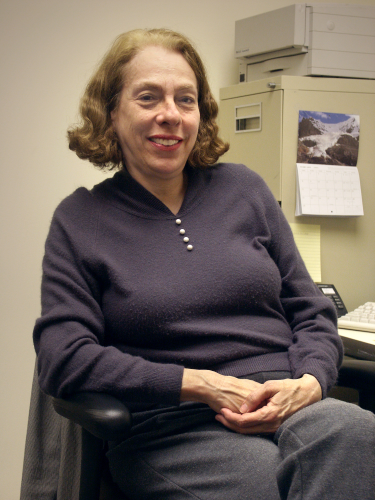Mar 04, 2013
Sheriff’s response team drives up arrests for paid sex: DePaul report
Sheriff’s response team drives up arrests for paid sex: DePaul report
CHICAGO — The number of arrests for those who pay for sex in Cook County has increased, while arrests for women and girls in the sex trade declined, according to a recent analysis of intervention activities initiated by the Sheriff’s Human Trafficking Response Team. Researchers at DePaul University College of Law’s Schiller, DuCanto & Fleck Family Law Center, who examined the team’s work to reduce the demand for paid sex, also found:
· The Cook County Sheriff increased customer arrests from a yearly low of 15 in 2008 to a high of 269 in 2011, while arrests of prostituted women and girls decreased from a high of 368 in 2010 to a low of 149 in 2011.
· Vice personnel, impersonating customers, found girls and women selling sex in 41 different area major hotel and motel chains, with Schiller Park, Schaumburg and Lansing the most frequent venues.
· Women arrested advertising on Backpage.com, a classified ad website, were 10 years younger than those in the entire sample.
· Fourteen percent of the women had traveled more than 60 miles from home to the site of the prostitution arrest, and these distance travelers were also 10 years younger on average than the sample. Given the long distance traveled, it is likely that many of these young women were transported to the prostitution venue.
The report also focused on how effectively the team addressed the demand side of prostitution — those who pay for sex — and how the team interacts with women and girls impacted by the sex trade. Established in 2009 by Cook County Sheriff, Tom Dart, the Human Trafficking Response Team includes five members of a vice unit, with support from two Sheriff’s police officers who patrol Mannheim Road and three survivors of prostitution who intervene with arrested women and girls.
The report also focused on how effectively the team addressed the demand side of prostitution — those who pay for sex — and how the team interacts with women and girls impacted by the sex trade. Established in 2009 by Cook County Sheriff, Tom Dart, the Human Trafficking Response Team includes five members of a vice unit, with support from two Sheriff’s police officers who patrol Mannheim Road and three survivors of prostitution who intervene with arrested women and girls.
“This is not a formal evaluation of the response team, but rather a report that gives an overview of the project, statistical information about its effects, and information that can be used to replicate the model,” said Jody Raphael, visiting professor of law and a senior research fellow at the Schiller DuCanto & Fleck Family Law Center, who led the study. Raphael’s primary research is focused in areas of violence against women, including domestic violence, sexual assault and the sex trade.
The analysis took a comprehensive look at numerous aspects of the team’s work, including initiating harsher laws aimed specifically at those found soliciting paid sex on the street or via the Internet; arrests of pimps and johns; and intervention strategies designed to help girls and women in the sex trade. Researchers for the study also interviewed community residents and businesses about the team’s effectiveness.
“Prostitution is almost like domestic violence in that it is a difficult cycle to break,” said Raphael. “The Internet has made it even easier for prostitution to thrive. It is important to understand how initiatives like Cook County’s response team work, especially to make customers and pimps more accountable. It is also instructive to learn how these types of programs can offer women — many of whom are victims of the sex trade — services and support to help them escape from the exploitation of human sex trafficking. This report can serve as a guideline to other law enforcement agencies looking to seriously address human sex trafficking.”
The complete study is available at: http://bit.ly/XzaWQm.
About the College of Law
Established in 1912, the DePaul University College of Law had an enrollment of 924 students in fall 2012. Its research centers and institutes focus on issues such as public interest law, family law, international aviation law, dispute resolution, criminal defense and intellectual property law. Among DePaul College of Law alumni are distinguished private practitioners and business people, state and federal judges, municipal, county and state leaders and two generations of Chicago mayors. For more information, visit http://www.law.depaul.edu/.
About DePaul University
With approximately 25,000 students, DePaul is the largest Catholic university in the United States and the largest private, nonprofit university in the Midwest. The university offers approximately 275 graduate and undergraduate programs of study on three Chicago and two suburban campuses. Founded in 1898, DePaul remains committed to providing a quality education through personal attention to students from a wide range of backgrounds. For more information, visit www.depaul.edu.
SOURCE:
Jody Raphael
312-362-5205

Jody Raphael, visiting professor of law and a senior research fellow at the Schiller DuCanto & Fleck Family Law Center
